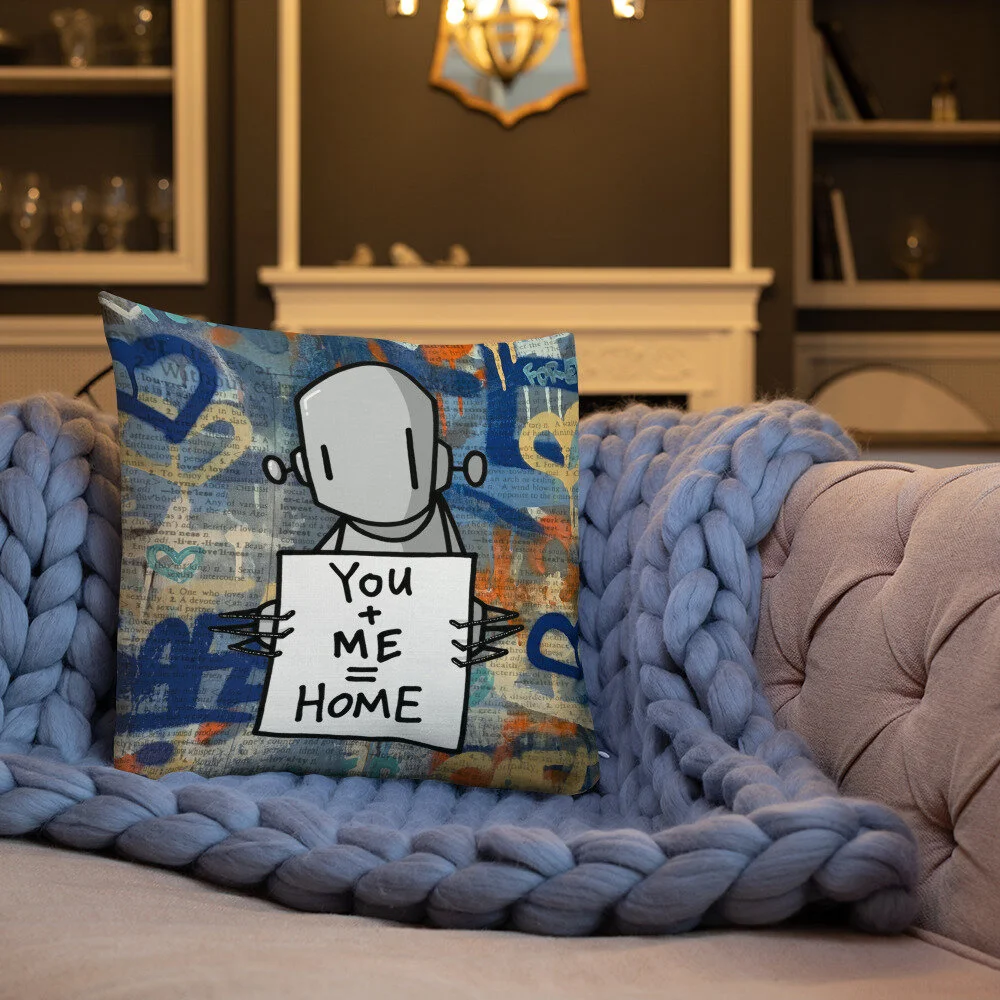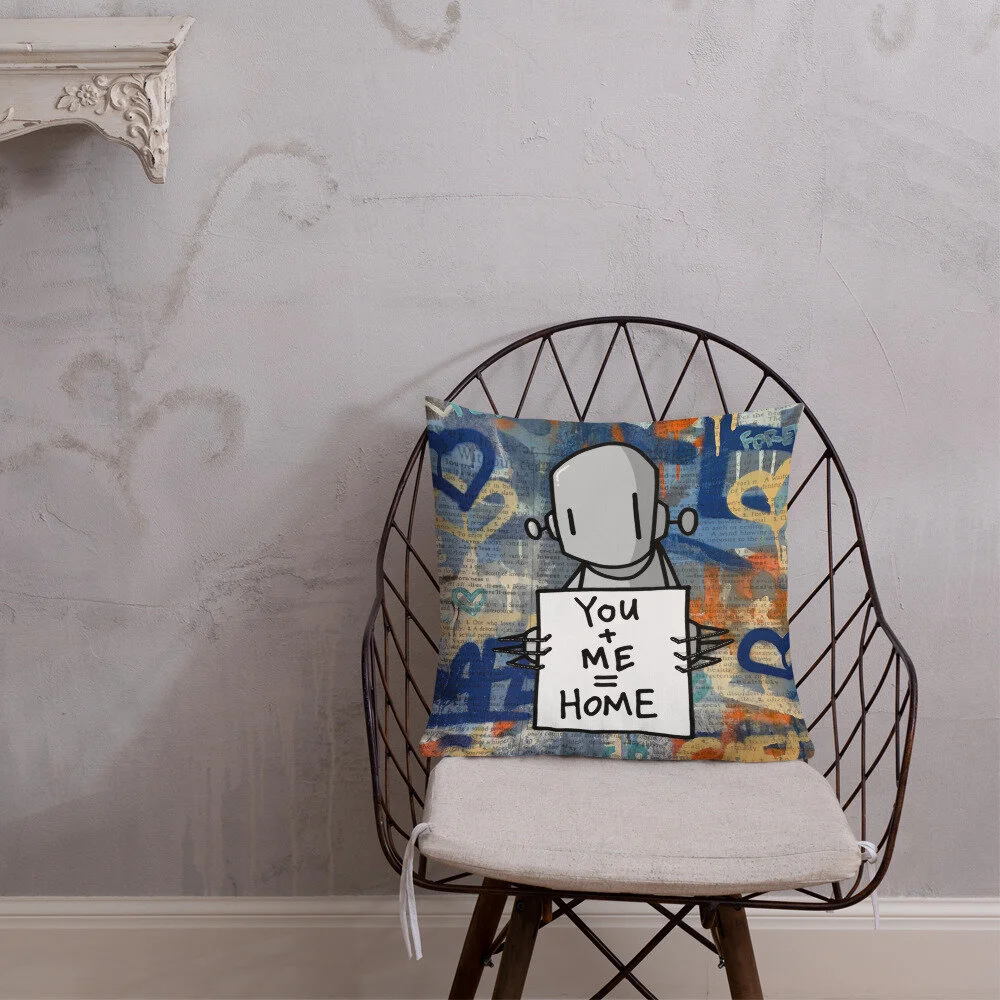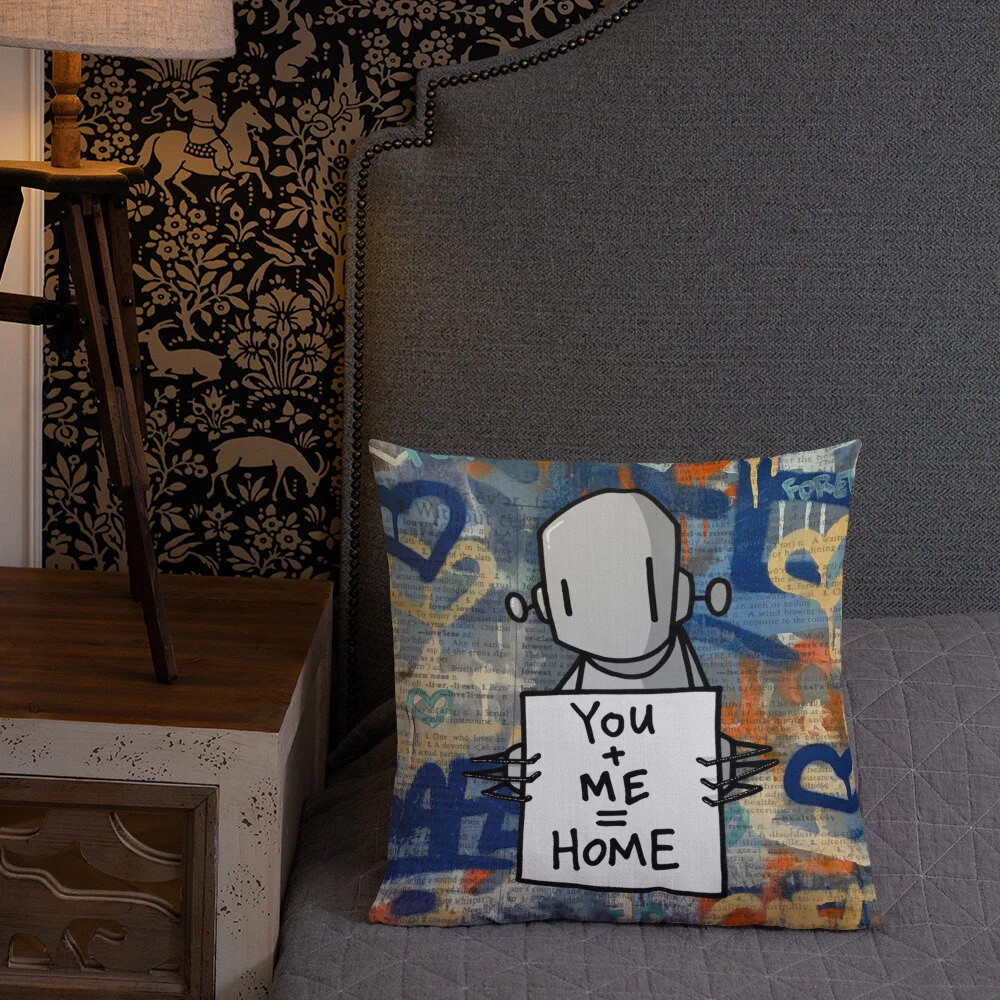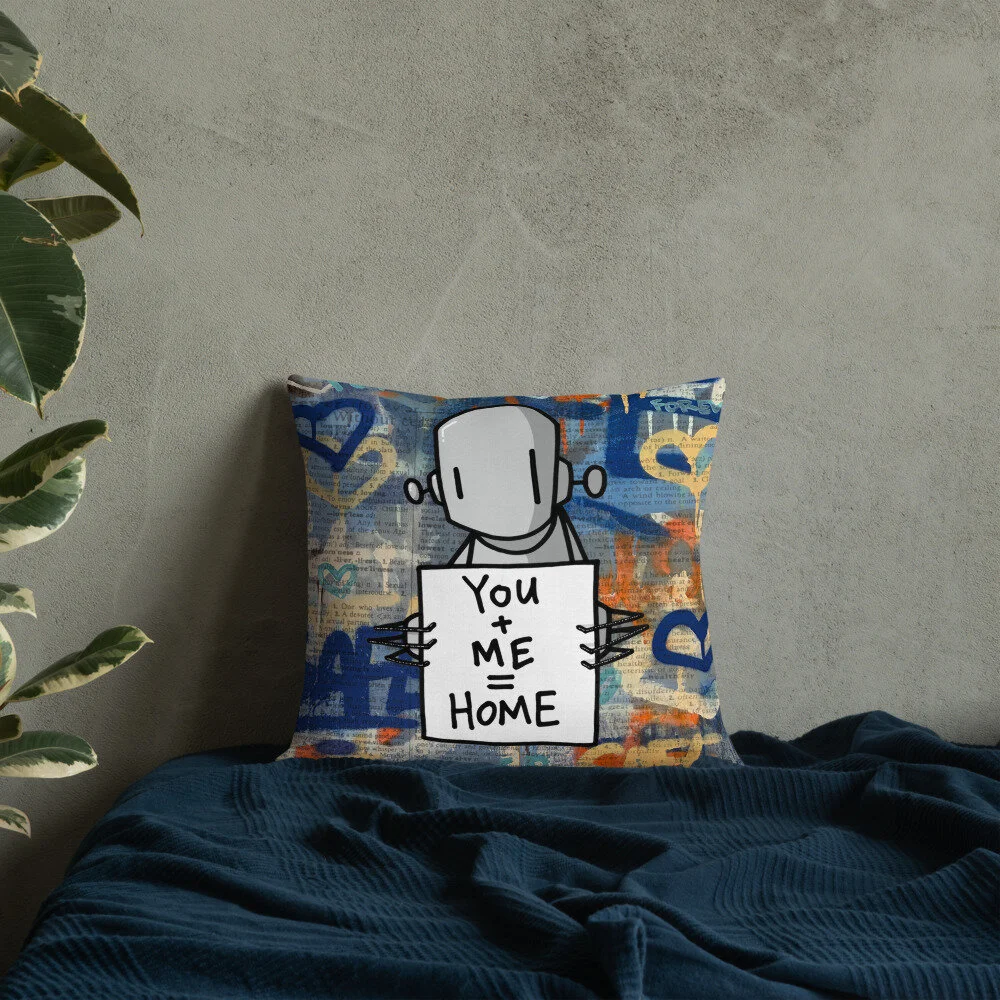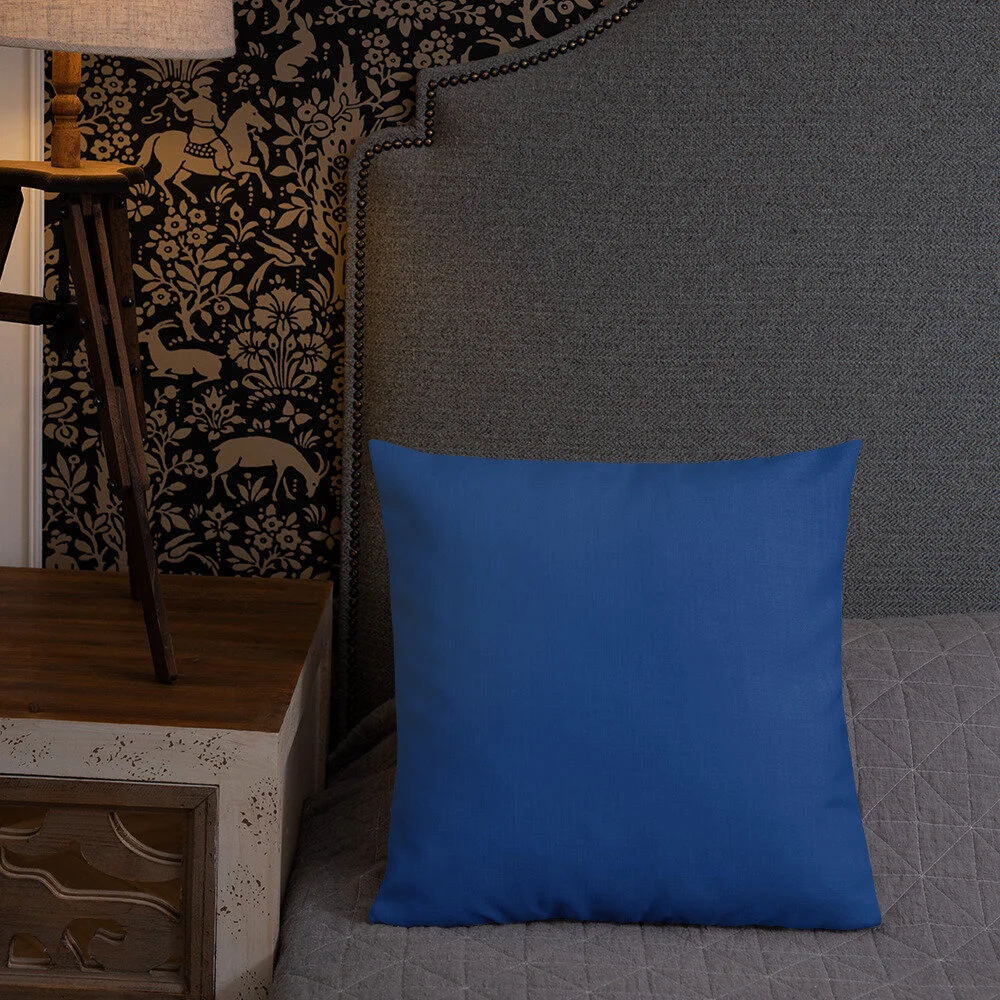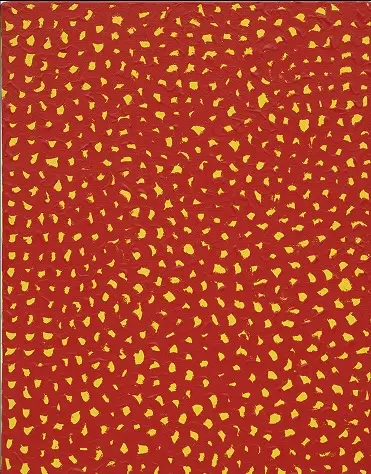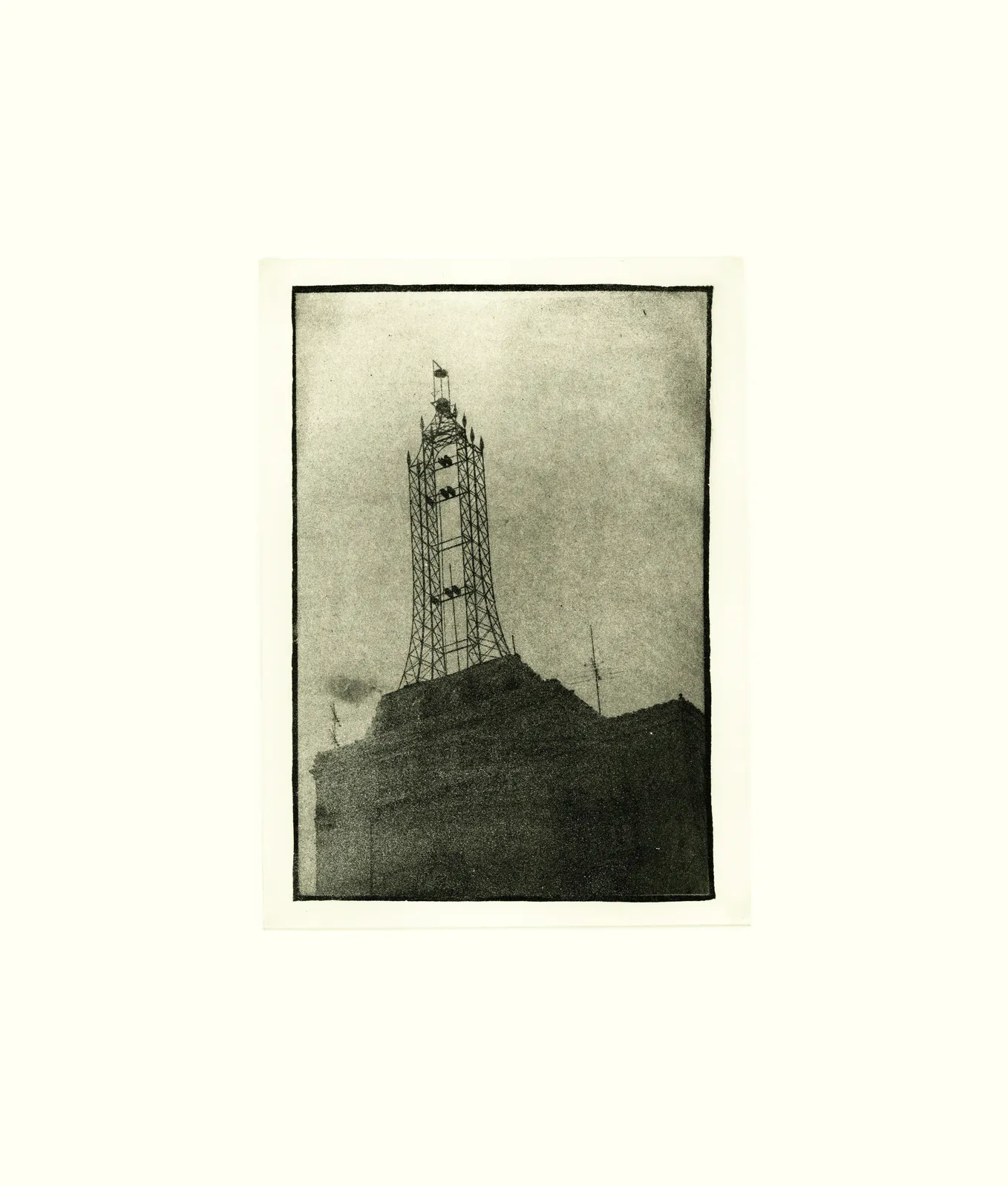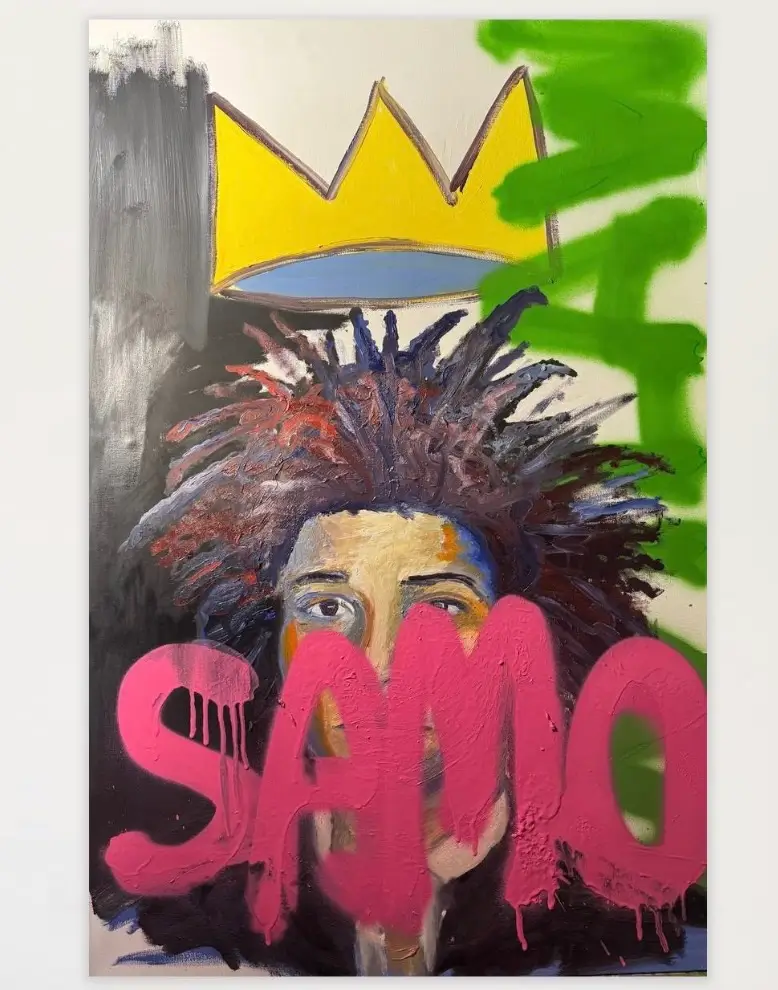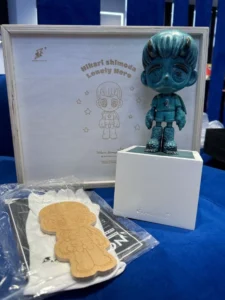In the ever-expanding dialogue between street art and domestic design, Chris RWK’s “Simple Math” throw pillow offers a curious synthesis: graffiti-inspired sentiment made soft, literally. RWK—short for Robots Will Kill—has long been recognized as one of New York’s essential figures in the post-graffiti movement, building bridges between comic-style tenderness and urban commentary. This throw pillow distills his ethos into a tangible, livable form—transforming a symbol of street expression into a quiet object of comfort.
idea
Chris RWK’s work originated from a collective ethos—his Robots Will Kill project founded in the early 2000s as an online space dedicated to graffiti artists seeking visibility beyond the wall. While the name may sound dystopian, the underlying philosophy is humanistic: his robots are surrogates for emotion, empathy, and connection in an increasingly mechanized world. That paradox—machine forms expressing vulnerability—is what animates this design.
The pillow image features RWK’s familiar figure, a simple robot holding a sign that reads, “You + Me = Home.” The backdrop, layered with hearts, scrawls, and weathered text fragments, echoes the surface of a city wall—paint layered over remnants of older stories. The formula “you + me = home” captures RWK’s characteristic sentimental minimalism: part graffiti tag, part universal message of belonging.
flow
Printed on a square textile canvas, the design juxtaposes rough textures with the intimacy of a living-room object. The fabric print mimics painted collage—the blues, oranges, and beige-grays resembling spray-paint fades and brushed overlay. The layering of script and shape evokes an impromptu mural photographed in Brooklyn dusk light.
The robotic figure—drawn in clean black line—stands in contrast to the chaotic background. That contrast mirrors RWK’s method on canvas and wall alike: precision characters amid distressed, expressive grounds. The pillow thus translates his mixed-media approach into soft furnishing, using digital print to preserve that collage energy.
trade
RWK’s greatest strength has always been the accessibility of his language. Where other street artists adopt irony or rebellion, RWK uses sincerity. The robot isn’t threatening but tender, an everyman seeking recognition. On the pillow, that emotional directness transforms the urban into the domestic. “You + Me = Home” could be read as romantic or familial, but its simplicity invites broader identification—suggesting community, coexistence, or friendship.
Placed on a sofa, the pillow becomes a micro-mural: an intimate declaration in a space of rest. What once was painted on concrete now leans against knit blankets and velvet upholstery, inviting touch instead of transience.
lang
The challenge of adapting street art for interiors lies in retaining authenticity without parody. RWK’s design succeeds because it preserves imperfection. The distressed newspaper textures and overpainted hearts convey the visual noise of urban walls, yet the limited palette and cartoon linework fit effortlessly into contemporary interiors. It’s both pop-friendly and emotionally raw.
The surrounding decor—seen here in the photograph, with pale lavender knit and soft-beige sofa—creates a visual dialogue: rough sentiment amid cultivated calm. The juxtaposition reinforces RWK’s appeal to collectors who value street-born honesty but desire domestic integration.
symbol
At its pithy, “Simple Math” belongs to RWK’s ongoing narrative about connection in a disconnected age. His robots, often depicted clutching notes, phones, or symbols of longing, stand as avatars of communication itself. The act of holding a sign—a recurring motif—suggests the urgency of self-expression, a nod to the roots of graffiti as social speech.
Here, the robot’s placard converts personal message into equation: You + Me = Home. It’s algebra of affection—simplified to the point of universality. RWK reframes intimacy as arithmetic: if life is chaotic, love provides balance. In soft furnishing form, that thought becomes not just visible but functional—an art object designed to be lived with.
position
The release of RWK’s design underlines the evolution of street art into lifestyle culture. Much like Shepard Fairey’s Obey Giant prints entering interior design or KAWS’ Companion sculptures populating living rooms, RWK’s pillows mark the domestication of graffiti’s once-outsider language. Yet, unlike mass-market adaptations, RWK’s products often retain his studio’s small-batch sensibility, ensuring each reproduction feels closer to an artwork than a novelty.
This shift aligns with broader trends in collectible home décor—where prints, rugs, and cushions by contemporary artists allow collectors to live with art, not merely look at it. RWK’s pillow thus sits comfortably between pop-culture object and accessible edition.
fin
Chris RWK’s Simple Math throw pillow is more than merchandise; it’s a gentle manifesto. It collapses the boundaries between wall and home, public and private, art and object. By softening graffiti’s raw edges into fabric, RWK redefines what it means to live with art born from the street.
In that equation—you + me = home—lies a broader truth of contemporary art’s trajectory: expression once made to survive on brick now thrives on the cushion of a couch, proving that sincerity and subculture can coexist beautifully within modern life.
No comments yet.

